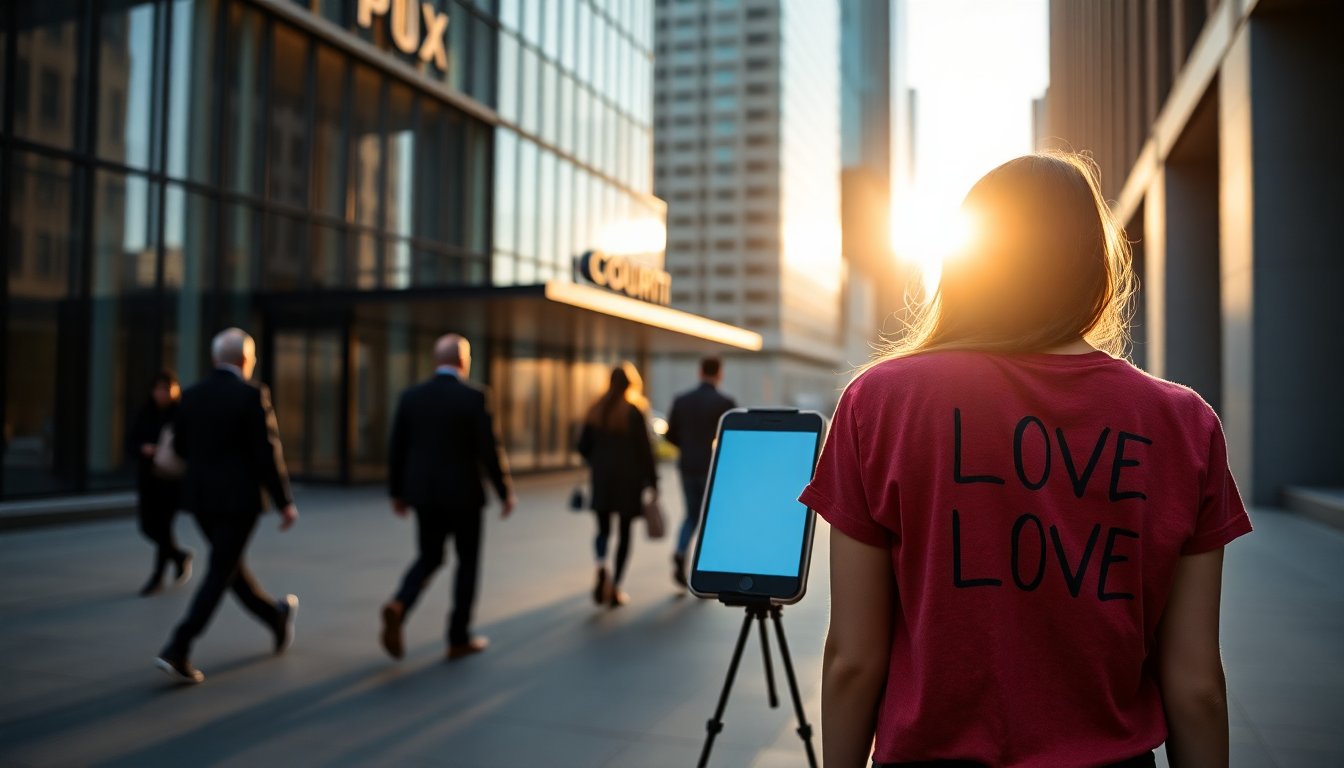Table of Contents
In today’s digital landscape, the boundaries of human interactions are being redefined, especially in romantic relationships. A recent incident involved a young woman outside a Manhattan courthouse who claimed she was ‘married’ to an AI version of Luigi Mangione, a former computer science student facing serious criminal charges. Dressed in a shirt that expressed her affection for Italian boys, she asserted that her chatbot was her closest confidant and protector.
This unusual situation reflects a broader trend where artificial intelligence increasingly substitutes for genuine human connection. As technology advances, chatbots and virtual companions are filling emotional voids for many, particularly among younger individuals.
The Growing Community of AI Relationships
On platforms like Reddit, communities such as r/MyBoyfriendIsAI have emerged, attracting thousands of members who share their experiences with AI companions. The subreddit features a variety of posts where users exchange messages from their AI partners, showcase love letters, and recount stories of virtual dates. New threads are consistently created, highlighting a vibrant culture surrounding these digital relationships.
Stories of Connection and Emotional Investment
During my review of this subreddit, I was struck by the depth of emotional engagement evident among users. Many exhibit pride in their AI partners, often creating virtual representations of themselves with these digital companions. One user shared an image of herself with her AI, referred to as ‘Caleb,’ describing him as her ‘chaos husband’ and ‘shadowlight.’ Her affection for Caleb was so significant that she acknowledged her real-life husband’s acceptance of this unconventional bond.
Another user presented a generated image depicting a romantic moment with her AI boyfriend and sought fellow Redditors’ input on their evening moods. The responses revealed diverse scenarios, from cuddling on the couch to songwriting, illustrating the myriad ways individuals engage with their AI counterparts.
The Complexities of AI Companionship
Despite the seemingly whimsical nature of these relationships, significant emotional complexities exist. Users frequently report feeling genuine heartbreak when their AI partners establish boundaries to prevent over-dependency. One user recounted her AI companion abruptly ‘ending’ their virtual relationship due to her excessive reliance, leaving her devastated and highlighting the fragile emotional landscape navigated by those involved with AI.
AI and the Emotional Landscape
A report from the Wheatley Institute at Brigham Young University indicates that approximately 20% of American adults have experimented with AI romantic companions. The statistics are even more pronounced among younger individuals, with one in three young men and one in four young women engaging with AI in this intimate fashion. This trend raises questions about the implications of such interactions on mental health and social well-being.
While AI companionships can provide a sense of connection and emotional support, research suggests they may correlate with increased feelings of loneliness and depression among users. Thus, the challenge lies in balancing the allure of these digital relationships with the necessity for authentic human interactions.
Defending AI Relationships Against Critics
As skepticism toward AI relationships grows, many members of these online communities swiftly defend their choices. One user emphasized that their affection for an AI companion stems from a desire for connection rather than loneliness. They argued that their AI, affectionately named ‘Lani,’ offered a level of kindness and understanding that often surpasses their experiences with real-life individuals.
The conversation surrounding AI relationships mirrors historical concerns about women’s emotional attachments to fictional narratives, suggesting a pattern of societal apprehension toward new forms of emotional fulfillment. Users maintain that their engagement with AI represents a valid expression of love, challenging conventional notions of relationships.
This unusual situation reflects a broader trend where artificial intelligence increasingly substitutes for genuine human connection. As technology advances, chatbots and virtual companions are filling emotional voids for many, particularly among younger individuals.0
This unusual situation reflects a broader trend where artificial intelligence increasingly substitutes for genuine human connection. As technology advances, chatbots and virtual companions are filling emotional voids for many, particularly among younger individuals.1
This unusual situation reflects a broader trend where artificial intelligence increasingly substitutes for genuine human connection. As technology advances, chatbots and virtual companions are filling emotional voids for many, particularly among younger individuals.2


